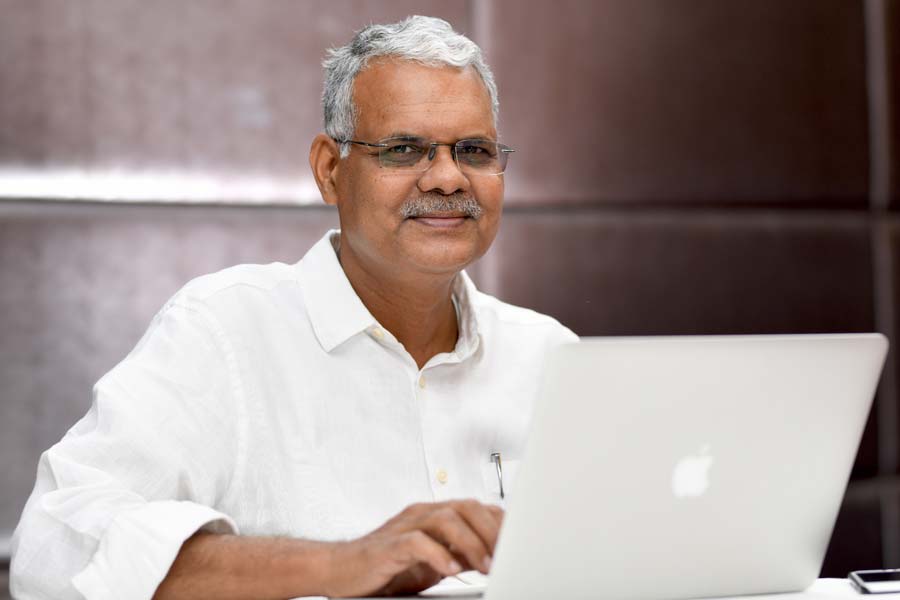Sresta engages with 50,000 organic farmers across 15 states
Mr Rajseelam, MD, Sresta Natural Bioproducts Pvt Ltd, reminisces the company’s humble origins in 2004, from a time when market research did not support their firm conviction to get into organic products. With an extensive farming network supporting its endeavour today, the company is now present in more than 40 countries across the globe. It offers over 300 products across various categories ranging from dals, rice and spices to ready-to-cook products like pasta and vermicelli.

IBT: How would you describe the journey of Sresta Natural Bioproducts Pvt Ltd its vision, and key achievements?
Rajseelam: Sresta took small steps towards success, starting in 2004. With the focus on creating means of sustainability for the farmers, it set about addressing two key areas – farmers and products. It undertook the task of creating communities for farmers who are committed to the cause of organic farming, ensuring continuing means of livelihood and building mutually beneficial relationships with them. For products, it adopted a unique farm-to-fork approach to ensure that farmers produce 100% organic products and the same were brought to its customers.
The brand’s vision is to create a sustainable lifestyle for consumers, sustainable livelihood for farmers, and help build a sustainable planet. Towards this end, the company launched Freedom from Pesticide programme in 2012 in a bid to encourage people to eat pure food. Another social outreach initiative is the Sresta Vidya Ayojan, an education initiative to ensure that children go to school and finish their education. Further, medical health camps and general health awareness programmes are undertaken from time to time.
Determined to offer a better choice to the people, and working against all odds, Sresta stands tall today as a leader in the organic foods category. Today 50,000 farmers cultivate over 200,000 acres across 15 states.
IBT: What is your company’s reach as per product segments and markets? What are the key ingredients for success in international markets in your view?
Mr. Rajseelam: The brand is present in more than 40 countries across the globe, offering more than 300 products across various categories ranging from dals, rice and spices to ready-to-cook products like pasta and vermicelli that adhere to US, European, Indian food safety standards.
Within India, we sell over 200 products under the label 24 Mantra organic food in big hypermarkets (modern retail), neighborhood super markets and stores (general stores), dedicated organic stores, own franchisee stores, and a revolutionary new concept of self-dispensing bulk stores, where consumers can buy loose and by the scoop.
In total, these products are sold in more than 7,500+ outlets across the globe. Over the years, Sresta has built a large consumer base. People believe in its products and the brand is synonymous with trust and integrity. We work to maintain the trust by providing customers with healthy and tasty food that is also good for nature.
IBT: What key lessons has Sresta Natural Bioproducts Pvt Ltd learned from the COVID-19 pandemic? How have you adapted and realigned your business model?
Mr. Rajseelam: The pandemic has helped Sresta grow as a brand, as people across the world have started looking for healthier eating options and organic foods fit perfectly to their needs. The credit goes to the team; even in such times, they have geared up to source requisite raw materials, and make the supply chain more robust. The ability to understand things in real-time has helped us to ensure that we service the customers’ requirements.
IBT: What advice would you like to offer to young entrepreneurs on managing risk, coping with failure, and leadership?
Mr. Rajseelam: When the brand started, whatever data it had or whatever market survey it conducted had shown that it would be foolish to invest in organic food. As entrepreneurs, one should see the research available, but it is equally important to listen to your gut and take risks. For us this was never really a business, it was a chance to do good to nature. So we have to persevere and work hard to achieve the vision.
IBT: How do you view India’s level of competitiveness in your sector, and how can it be enhanced?
Mr. Rajseelam: India’s role in the organic export market is less than 1%, and most of this is from low-value commodities. So, it is important to develop value-added products to capture the international markets. However, this requires a lot of investment and efforts.
IBT: Government has announced schemes such as PLI and Atmanirbhar Bharat. How can these be leveraged to enhance India’s processed food industry and enhance its global share in line with its rich agri potential?
Mr. Rajseelam: These schemes are a huge boost to exporters to help organizations to up their game and increase their ability to invest in various markets. The PLI scheme is a great initiative for companies to boost their manufacturing scale.
IBT: What role can FTAs play? How can market entry barriers be eased for Indian exporters?
Mr. Rajseelam: International trade has become more challenging as countries are trying to protect their own industries and try to maximize exports. India has a great advantage in demographics. As it has various climatic zones, it can grow crops that are cultivated across the globe. The important thing is to create alignment between the businesses, government, and the various stakeholders.
There is a lot of talk about the FTAs; a bigger issue is in terms of the non-tariff trade barriers that are documentation, certifications and testing. This is something that the country should negotiate with most of the governments and that will ensure that companies increase exports and get their due share in the markets.
This interview is a part of TPCI’s Connect initiative. Views expressed are personal.













Leave a comment